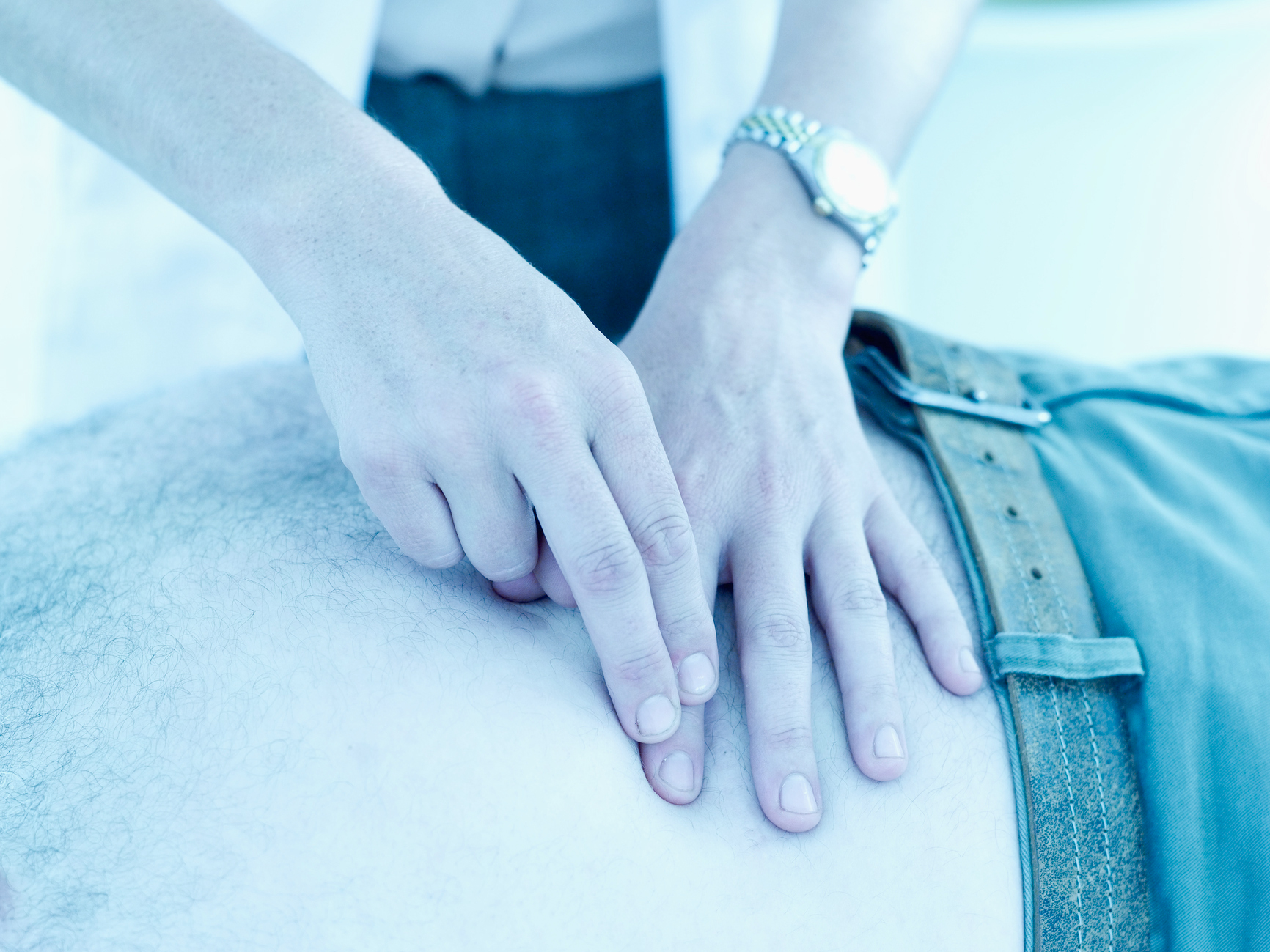Get Easy Health Digest™ in your inbox and don’t miss a thing when you subscribe today. Plus, get the free bonus report, Mother Nature’s Tips, Tricks and Remedies for Cholesterol, Blood Pressure & Blood Sugar as my way of saying welcome to the community!
More protein could be the answer to defeating fatty liver disease

It’s no secret that carrying around too much weight hurts…
It increases your risk for heart problems, intensifies joint pain and sets you up for diabetes.
But, there’s one organ most people forget about that’s especially vulnerable to a heavy load…
Your liver.
In fact, obesity is a major factor for a condition known as non-alcoholic fatty liver disease or NAFLD.
That’s when more than five percent of your liver’s total weight is made up of fatty tissue. This excess fat leads to scarring (or cirrhosis of your liver) and can significantly increase your risk of both liver cancer and liver failure.
And, if that weren’t bad enough, having NAFLD also makes it more likely that you’ll develop type 2 diabetes. In fact an estimated 70 percent of people with type 2 diabetes also have a fatty liver.
So, there’s no doubt that losing weight is imperative to avoid NAFLD and the bad stuff that comes with it. But you don’t have to starve…
A new study reported in the American Journal of Physiology-Endocrinology and Metabolism has found a way to combat fatty liver disease using only protein.
Here’s what they discovered…
More protein following weight loss nixes NAFLD
Previous studies have found that short-term protein supplementation helps to reduce the fat content in the liver, but there have been few studies on the long-term effects of protein on NAFLD.
Until now…
Researchers conducted a two-year study to determine the long-term impact of dietary protein on a fatty liver after weight loss as part of the PREVIEW study — which aims to identify the most efficient lifestyle pattern for the prevention of type 2 diabetes in people who are pre-diabetic and overweight or obese.
They took 25 volunteers — 15 of whom had been previously diagnosed with NAFLD — and put them on a low-calorie diet for eight weeks to lose up to 8 percent of their body weight.
After the weight loss, the volunteers were told to maintain their weight for two years and to follow either a moderate or high-protein diet averaging from 0.8 to 1 grams of protein per 2.2 pounds of body weight.
For example, a person who weighed 180 pounds and was in the moderate protein group would consume approximately 65 grams of protein while the same person would take in almost 82 grams of protein if they were part of the high protein pack.
And, the results were impressive…
After two years maintaining their weight loss, the increase in dietary protein in both groups was associated with reduced liver fat content in the volunteers.
Even better, more than half of the participants who were previously diagnosed with NAFLD no longer had a fatty liver.
“These findings stress the clinical implications and potential benefits of increased protein intake after weight loss for people with NAFLD at risk to develop diabetes,” the researchers wrote.
Beat fatty liver with weight loss and protein
This means that the two most important steps to overcoming fatty liver and preventing the blood sugar problems it leads to are to lose weight and up your protein intake. A paleo-styled diet may be something to consider… more protein, less sugar and carbs.
Additionally, it’s important to support the health of your liver. Certain supplements have been studied over the years for their liver benefits:
- N-Acetyl Cysteine (NAC)
- Milk Thistle
- Turmeric
- Alpha Lipoic Acid (ALA)
Editor’s note: Are you feeling unusually tired? You may think this is normal aging, but the problem could be your master hormone. When it’s not working, your risk of age-related diseases skyrockets. To reset what many call “the trigger for all disease” and live better, longer, click here to discover The Insulin Factor: How to Repair Your Body’s Master Controller and Conquer Chronic Disease!
Sources:
- More protein after weight loss may reduce fatty liver disease — American Physiological Society
- Non-Alcoholic Fatty Liver Disease — American Liver Foundation












